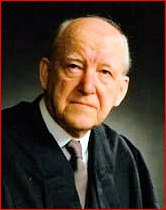 God’s love for the world was demonstrated by the giving of His Son so that all who believe in Him will in no way perish, but instead, have everlasting life.
God’s love for the world was demonstrated by the giving of His Son so that all who believe in Him will in no way perish, but instead, have everlasting life.
The majority of American evangelism is reduced to “God Loves You and has a wonderful plan for your life.” But was the love of God even part of the Gospel that the Apostles preached in the Book of Acts?
What was the emphasis in the evangelistic preaching of the Apostles as recorded in the book of Acts? Does the record of Acts support the notion that the central focus of Christianity is one’s love relationship with God and personal life enhancement? Or did these disciples of Christ focus on something else?
The list below includes every instance of evangelistic preaching in the book of Acts, a summary of content, and an analysis of emphasis (©1999 Gregory Koukl. Reproduction permitted for non-commercial use only. For more information, contact Stand to Reason at 1438 East 33rd St., Signal Hill, CA 90755
(800) 2-REASON (562) 595-7333).
1. Pentecost, Acts 2:14-39
Peter notes the manifestations of the Holy Spirit that all had been witnessing, then ties them to the fulfillment of prophecy of Joel about the last days. He then preaches Jesus as the Messiah–attested to by miracles and by the resurrection which was prophesied by David–and the guilt of the crowd for the crucifixion.
The emphasis is on forgiveness of sin by Jesus the Messiah. There is no mention of God’s love or a relationship with Him.
2. Peter at the Gate Beautiful, Acts 3:12-26
After Peter and John healed a man lame from birth, Peter placed the blame for Jesus’ death on the shoulders of the listeners. He then appealed to fulfilled prophecy and told them either to believe and return and thus receive forgiveness and times of refreshing, or be destroyed.
The emphasis is on forgiveness of sin by Jesus the Messiah. There is no mention of God’s love or a relationship with Him.
3. Peter before the High Priest, Acts 4:8-12
Peter attributes the healing of the man lame from birth to Jesus the Messiah, whom the Jews had crucified, but whom God had raised from the dead. He quotes prophecy and says there is no other means of salvation but through Jesus. Peter then refuses to be silent about the Gospel.
The emphasis is on forgiveness of sin by Jesus the Messiah. There is no mention of God’s love or a relationship with him.
4. Peter’s Defense a Second Time before the Council, Acts 5:29-32
Peter proclaims the resurrected Christ as Prince and Savior who brings forgiveness of sin and gives the gift of the Holy Spirit. He accuses the Council of putting Jesus to death. They are so infuriated they want to kill the Apostles. Instead, on the advice of Gamaliel, the believers are flogged and released.
There is no mention of God’s love or any kind of tender relationship with Him.
5. Stephen’s Defense before the Council, Acts 7:1-60
Stephen recounts the history of the Jews in which they constantly rebel, rejecting God’s deliverer. He accuses the Jews of being stiff-necked, resisting the Holy Spirit just as their forefathers had. He accuses them also of betraying and murdering the Righteous One, the Messiah. They are so filled with rage they murder him.
Emphasis is on the guilt of the Jews. There is no mention of God’s love.
[Note: When God speaks to Saul about his future during the events surrounding Saul’s conversion (Acts 9), there is no mention of an intimate relationship, only that Paul would suffer much for the sake of Christ.]
6. Peter’s Message to the Household of Cornelius, Acts 10:34-43
Peter talks of the ministry of Jesus, His miracles, death on the cross, and resurrection. Peter tells the Gentiles it is his job to solemnly testify that Jesus is the One appointed by God to judge the world, that Jesus’ coming was prophesied, and that belief in Him brings forgiveness of sin.
The emphasis is on Jesus, the prophesied Messiah who either brings judgment or forgives of sin. There is no mention of God’s love.
7. Paul’s Message to the Jews in the Synagogue at Pisidian Antioch, Acts 13:16-41
Paul preaches Jesus as the anticipated Savior, affirmed by John the Baptist, crucified by the Jews, who rose from the dead in fulfillment of prophesy. Paul then proclaims forgiveness of sin and freedom from the Law for all who believe.
Paul proclaims Jesus the prophesied Messiah crucified and resurrected. His emphasis is on forgiveness amidst warning.
8. Paul at the Areopagus in Athens, Acts 17:22-31
Paul discloses the nature of the “unknown God,” One who is responsible for all creation, and in whom we all depend for our very existence. He calls all men to repent, because God has appointed a judge, a man who has risen from the dead.
Emphasis is on the nature of God, and the reality of judgment. There is no mention of relationship or God’s love.
9. Paul’s Defense before the Jews in Jerusalem, Acts 22:1-21
Paul gives his testimony, detailing his persecution of Christians motivated by his zeal toward God, his conversion on the road to Damascus, and how his sins were washed away in Jesus’ name. When he mentions his mission to the Gentiles, however, the Jews protested violently.
Emphasis is on Paul’s personal encounter with Christ, his own forgiveness from sin, and his subsequent mission. There is no offer of personal relationship with God or mention of God’s love.
10. Paul’s Defense before the Sanhedrin, Acts 23:1-6
Paul says he is on trial for the hope and resurrection of the dead. There is no mention of the love of God.
11. Paul’s Defense before the governor, Felix, Acts 24:10-21
Paul establishes his innocence regarding the Jews’ charges, then affirms the Law and the Prophets and the general resurrection of both righteous and wicked, a belief for which he says he is on trial.
There is no mention of God’s love or even of forgiveness.
12. Paul before Felix and Drusilla, Acts 24:24-25
Paul speaks of righteousness, self-control, and the judgment to come which frightens Felix who then sends Paul away. There is no mention of God’s love or of a personal relationship with Him.
13. Paul’s Defense before the Agrippa, Acts 26:1-29
Paul gives his testimony, noting the importance of the resurrection. He tells of the commission Jesus had given him, proclaiming the Gospel with a goal of deliverance from Satanic darkness to receiving forgiveness and an inheritance from God. Paul claims his message is the same as the prophets regarding the Messiah’s suffering and resurrection.
Emphasis is on the resurrection of Christ, prophetic fulfillment and forgiveness, and Paul’s responsibility to preach the Gospel. There is no mention of love or a relationship with God.
The love of God is never mentioned a single time in the entire book of Acts.
Concerning this, Steven Langella observed, “What we do see is God’s love continually mentioned over and over in the epistles, letters written to Christians. But we really do not see it in any of the evangelistic outreaches of the apostles. Yet most gospel messages today are nothing but “God loves you,” with no mention of judgment, repentance, the work of Christ on the cross, etc… Just do your own survey. Stand on any street corner in your city and ask 50 people what they think about God. I am sure that the majority will say “God is a loving God”. The love of God has been elevated above all the other attributes of God. People will be quick to tell you “God is love”. But the Bible also says “God is Holy”. In fact the bible never says God is “Love, Love, Love.” But it does say God is “Holy, Holy, Holy”.
So what am I saying? To not speak of God’s love? Not at all, but to ONLY Speak of God’s love is doing a great injustice to the Gospel. I believe we need to preach the love of God which is displayed through His Son Jesus Christ and what He accomplished on the Cross.”
 (1) Ligonier is having its BIGGEST ONE DAY SALE OF THE YEAR in TODAY’S $5 Friday sale. There are many EXCELLENT deals and I particularly recommend “What Is Reformed Theology?” DVD series, normally $60, the “What Did Jesus Do?: Understanding the Work of Christ” DVD series, which is normally $48, “Dealing with Difficult Problems” CD set, normally $24, and “The Truth of the Cross” Audio Book, normally $15, all by Dr. R. C. Sproul. Check out the $5 Ligonier sale here
(1) Ligonier is having its BIGGEST ONE DAY SALE OF THE YEAR in TODAY’S $5 Friday sale. There are many EXCELLENT deals and I particularly recommend “What Is Reformed Theology?” DVD series, normally $60, the “What Did Jesus Do?: Understanding the Work of Christ” DVD series, which is normally $48, “Dealing with Difficult Problems” CD set, normally $24, and “The Truth of the Cross” Audio Book, normally $15, all by Dr. R. C. Sproul. Check out the $5 Ligonier sale here while supplies last.
 (2) An Encouraging testimony from England:
(2) An Encouraging testimony from England: (4) Speaking of Dr. Martyn Lloyd-Jones, when I entered the Christian ministry, my father invested in me by buying me many of his commentaries. As a preacher and pastor himself, he told me that outside of the Bible itself, these were the finest books in his personal library (a library he had built up over many decades). At the time, I did not realise the great treasure I had been given. However, in actually sitting down and reading his works, I find an incredible amount of spiritual “meat” for my soul on each page. There is little or no “fluff” whatsoever, just thorough exegesis of the text of Scripture as well as thoughtful and penetrating application. I cannot help feeling that he fed his people well.
(4) Speaking of Dr. Martyn Lloyd-Jones, when I entered the Christian ministry, my father invested in me by buying me many of his commentaries. As a preacher and pastor himself, he told me that outside of the Bible itself, these were the finest books in his personal library (a library he had built up over many decades). At the time, I did not realise the great treasure I had been given. However, in actually sitting down and reading his works, I find an incredible amount of spiritual “meat” for my soul on each page. There is little or no “fluff” whatsoever, just thorough exegesis of the text of Scripture as well as thoughtful and penetrating application. I cannot help feeling that he fed his people well.
 Here is some good insight from Kevin Deyoung.
Here is some good insight from Kevin Deyoung. An excerpt from Dr. R. C. Sproul’s book, Loved by God.
An excerpt from Dr. R. C. Sproul’s book, Loved by God.
 God’s love for the world was demonstrated by the giving of His Son so that all who believe in Him will in no way perish, but instead, have everlasting life.
God’s love for the world was demonstrated by the giving of His Son so that all who believe in Him will in no way perish, but instead, have everlasting life. Pastor John,40. The Pharisees loved the Bible but were not even saved. Don’t become like them.” I still believe I should study the Bible but his words ring in my ears as a constant dampener on the joy I feel when I look into God’s word. Is he right?
Pastor John,40. The Pharisees loved the Bible but were not even saved. Don’t become like them.” I still believe I should study the Bible but his words ring in my ears as a constant dampener on the joy I feel when I look into God’s word. Is he right? In 1981, the Centers for Disease Control and Prevention in Atlanta published a report saying that they had identified, without probable cause, five cases of a rare strain of pneumonia among men in Los Angeles. By the following July, this disease, now appearing in isolated pockets around the world, was given the name Acquired Immune Deficiency Syndrome or AIDS. Just two years later, proclaiming that we would soon be able to inoculate people against this disease, the United States Health and Human Services Secretary said, “yet another terrible disease is about to yield to patience, persistence and outright genius.” Almost twenty years later, we know a great deal more about the disease, but we still have no cure and no inoculation. Since its discovery AIDS has claimed over 25 million lives.
In 1981, the Centers for Disease Control and Prevention in Atlanta published a report saying that they had identified, without probable cause, five cases of a rare strain of pneumonia among men in Los Angeles. By the following July, this disease, now appearing in isolated pockets around the world, was given the name Acquired Immune Deficiency Syndrome or AIDS. Just two years later, proclaiming that we would soon be able to inoculate people against this disease, the United States Health and Human Services Secretary said, “yet another terrible disease is about to yield to patience, persistence and outright genius.” Almost twenty years later, we know a great deal more about the disease, but we still have no cure and no inoculation. Since its discovery AIDS has claimed over 25 million lives. And I guess this is the reason I wrote The Discipline of Spiritual Discernment way back in 2007. And it is why wherever I travel I find myself encouraging people to be deliberate in growing in spiritual maturity. The church is in need of discerners, of people who are mature and maturing in the faith, who are skilled in separating truth from error and right from wrong, and who can do it all holding fast to both truth and love. The church needs Christians like this who can protect her from the constant false gospels that rise up against her.
And I guess this is the reason I wrote The Discipline of Spiritual Discernment way back in 2007. And it is why wherever I travel I find myself encouraging people to be deliberate in growing in spiritual maturity. The church is in need of discerners, of people who are mature and maturing in the faith, who are skilled in separating truth from error and right from wrong, and who can do it all holding fast to both truth and love. The church needs Christians like this who can protect her from the constant false gospels that rise up against her. “… a platoon of American soldiers is captured by soldiers from the north during the Vietnam War and put in a prisoner of war camp. The American soldiers have no money and have to barter for whatever one soldier has and another soldier wants, which is not a very satisfactory arrangement. But one day a CARE package arrives, and in it is a game of Monopoly. The soldiers are delighted, not because of the game but because of the money. They divide it up, each man getting an equal number of white, pink, green, blue, beige, and gold bills (except for the sergeant, who gets an extra $500). Now, whenever one soldier has an extra cigarette and a second soldier wants it, the first can sell it to him for $100, or whatever. The money is very useful.
“… a platoon of American soldiers is captured by soldiers from the north during the Vietnam War and put in a prisoner of war camp. The American soldiers have no money and have to barter for whatever one soldier has and another soldier wants, which is not a very satisfactory arrangement. But one day a CARE package arrives, and in it is a game of Monopoly. The soldiers are delighted, not because of the game but because of the money. They divide it up, each man getting an equal number of white, pink, green, blue, beige, and gold bills (except for the sergeant, who gets an extra $500). Now, whenever one soldier has an extra cigarette and a second soldier wants it, the first can sell it to him for $100, or whatever. The money is very useful.